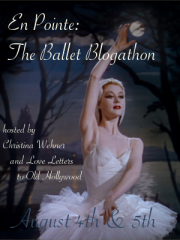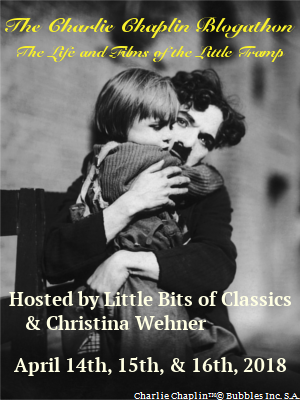 So, I have a question for everyone that has intrigued me for the last few days. How do you identify with characters in a book?
So, I have a question for everyone that has intrigued me for the last few days. How do you identify with characters in a book?
Do you imagine yourself as those characters? Do you see yourself as some and not as others? Or do you imagine yourself meeting these characters rather than being them?
It occurred to me, recently, that my reaction to characters often hinges on whether or not I would like to know them. This is why, I think, I tend to side with the “good and boring” characters in books rather than the frequently “complex” characters.
I think this is also why She from H. Rider Haggard’s She drove me absolutely up the wall. A woman who enslaves men with her beauty and turns them into fatuous idiots and has no use for other women? Yeah, I would definitely hate meeting that kind of women. Yet other readers have enjoyed her power over men. Are they, perhaps, identifying with her rather than imagining meet her?
But as Richard Jenkins wrote in A Fine Brush On Ivory: An Appreciation of Jane Austen in regards to the worldly Mary Crawford’s affectionate response to Fanny Price and the people of Mansfield Park, “it is simply more agreeable to be among decent, good-hearted people than out in the cold wide world.” This, of course, mostly applies to meeting real people rather than fictional ones.
But on the whole, I do not identify with characters and rarely see myself in them.
There is one character, however, I identify with. Not because she’s just like me, but because I could so easily imagine myself in her place, thinking as she does and reacting similarly. It’s Fanny Price from Mansfield Park, perhaps my most cherished Jane Austen novel. I’ve read Pride and Prejudice more often, but I have a special affection for Mansfield Park and a special sense of protectiveness towards Fanny Price…not that she is likely to need it by the end of the book.
But most people do not warm to Fanny Price. They find her powerless and insipid. She’s certainly not Jane Eyre. But I find her intellectually curious, timid, possessing a powerful response to nature and beauty, a warm heart, unalterable principles that she is willing to stand up for, overly anxious about her interactions with people, a sharp and incisive mind in regard to her assessment of people (though she has to learn confidence in her own judgments), sensitive (perhaps overly so), inexperience with the ways of the world, and a strong sense of duty. But she’s not an exciting person.
Though Richard Jenkins writes (whose book I love because he loves Mansfield Park as much as I do) in response to the frequently expressed thought that one cannot have a mousy heroine, “It has been one of the boasts of the novel that it does not restrict itself to the splendours and miseries of the grand, the glamorous, and the clever; all human life, however ordinary and unspectacular, comes within its purview…Plenty of people are dull or insignificant or lacking in talent and resources. If they cannot play a leading role in a work of literature, we must conclude that there is much that literature cannot do.”
But in truth, if I am going to identify with anything, it is usually feelings or emotions or ways of thinking rather than actual characters. Many people talk of identifying with Jo March. I never did. Quick temper? Not me (have you ever noticed that mild personalities rarely garner respect in novels? Mild personalities frequently translate as tepid. Literature loves nothing so much as a quick temper). But the last time I read Little Women, I managed to look beyond the externals of her personality and recognize – not character – but feelings and thoughts that resonated with me.
This still is not a common sensation for me, though. It has occurred most frequently with Jane Austen and Leo Tolstoy’s novels. They have an extraordinary ability to convey how real people think and react.
I’ve always thought there was a dearth of certain kinds of personalities, though, and my question has been, do I not identify because people tend not to write about characters who I would identify with, or is it simply the way that I approach books that prevents me from more closely seeing myself in other characters?
Of course, there is also the instances where I simply enjoy the creation of an unusual and fascinating (or humorous character), quite apart from whether I like them or identify with them or would want to meet them. Mrs. Gibson from Elizabeth Gaskell’s Wives and Daughters. Mrs. Bennett and Mr. Collins from Pride and Prejudice. Jeeves and Wooster. These are characters who are simply a joy to read about.








Andrea Lundgren
February 7, 2017 at 12:44 pm
I think I am a mix. I often relate to feelings as well as to characters, depending on how many feelings we share (I actually identify more with Jane Eyre and Jo March than Fany Price, which is probably why I have such an opinion on who Jo marries–though I also identify strongly with Anne Elliot). But I think you’re right. Literature tends to be about something happening, and because calm tempered, good people aren’t unlikely to “do” things or even cause them, they would come across more as victims and be side characters rather than the primary agents of action and change and conflict.
LikeLiked by 1 person
christinawehner
February 7, 2017 at 1:22 pm
But I’ve always liked stories about “weak” people and wanted to read more of them, even though they don’t come off as well. Or else they are harder to write about. But I hate to think it’s impossible to do!
So is it feelings more than personality that you relate to?
That makes a lot of sense about identifying with Jo resulting in stronger feelings of who she marries.
LikeLike
B Noir Detour
February 7, 2017 at 2:12 pm
I enjoyed your post. I vary in how I react/relate to characters in novels. I can get impatient with passive characters or cheer on those who break traditions and fight for their happiness, for example. I am impatient with Jane Eyre, loathe Rochester, and share author Jean Rhys’s desire to know what made Bertha a madwoman. In fact, I empathize with all of Rhys’s sad, wounded protagonists with life stacked against them. By contrast, I learn from but can’t relate to the women of Nella Larsen’s beautiful painful novels.
Different from all of this is my experience as an actress. When I played Blanche DuBois in a local presentation of Streetcar Named Desire, I sympathized with her in ways I had not when reading the play in past or when watching the film. I had to get inside her perspective, which is awesome as an actor but doesn’t happen as much as a reader…except maybe when you read first person narratives.
Right now, I’m teaching Holocaust survivor narratives, and I may ask myself what I might do in their shoes, but of course I can’t really relate. I can sympathize.
Not sure if this adds anything useful to the discussion, but wanted to share my thoughts.
LikeLiked by 1 person
christinawehner
February 7, 2017 at 3:57 pm
It’s great to hear your thoughts on the topic!
I would not have thought of it, but it makes sense what you say about how playing a character changes how you sympathize with her. I’ve never acted in a play, but I feel somewhat like that about music. If I play the music or sing it as part of a choir, it changes how I hear the music (do you do a lot of acting?).
What an interesting point about first person narrative perhaps giving us a little bit of that experience…at least for the one character. And it seems like that third person omniscient, although sometimes heavy handed, can do that a little, too (Tolstoy can be really good at that). But not like actually acting, I would think
Does it seem, then, that there are some experiences that are beyond our ability to truly understand, as much as we try? That our own life experiences, as much as our personalities, affect our ability to identify or relate?
LikeLiked by 1 person
thoughtsallsorts
February 8, 2017 at 4:17 am
Interesting that you raise this around understanding and sympathising – I’ve just written up a post on Whiplash (the movie), where most people tend to sympathise rather than understand. I understand because I’ve been in that boat as a music student. What is really interesting is that so many people rushed out to start drumming/percussion lessons on watching that movie….they clearly don’t understand.
I’m a few chapters into Mansfield Park and am totally frustrated with Fanny Price…I’ll give her a chance though.
LikeLiked by 1 person
christinawehner
February 8, 2017 at 10:21 am
Thanks for highlighting that point! I didn’t quite process it in that way – the difference between understanding and sympathy. Do you think it is ever possible to gain understanding, then, when we do not have the life experience necessary to process something.
I think one way to look at the character of Fanny is to see her as an oppressed (and even depressed) and damaged personality…but she does grow throughout the book. She’s very young (only eighteen for most of the novel), but I always thought she was the kind of person to grow up and protest against slavery as an adult.
LikeLiked by 1 person
thoughtsallsorts
February 8, 2017 at 10:32 am
Good question – the understanding one. I’m not sure really…possibly depends on the situation…back to Whiplash, I think that possibly, unless you’ve experienced it, you’d say “gee, that must be so hard” but not sure that the tears, the frustration, the sheer hopelessness can be understood or even felt. I may be wrong. I’ll think it through some more.
As for Fanny…I’ll let you know what I think of her when I get to the end of the book. Thanks for your insight.
LikeLiked by 1 person
christinawehner
February 8, 2017 at 8:46 pm
That makes sense what you say about understanding.
I will be very interested to know what you make of Fanny!
LikeLiked by 1 person
thoughtsallsorts
February 8, 2017 at 9:35 pm
That was a good couple of comments we shared…enjoy these thought provoking “discussions”. Thank you.
LikeLiked by 1 person
christinawehner
February 9, 2017 at 2:20 pm
And thank you. These conversations with others have been the best part of blogging for me. It’s expanded my thoughts.
LikeLiked by 1 person
The Animation Commendation
February 7, 2017 at 5:51 pm
An interesting perspective as I’ve often felt the same way: that I never really got the whole “identifying with a character” concept either that most people seem to either. I mean, maybe I’ve indentified with a couple, but mostly the characters I like tend to be people I’d like to hang out with or characters that I would personally like to play if I were an actor.
LikeLiked by 2 people
christinawehner
February 7, 2017 at 7:57 pm
So glad to know others feel that way, too! That is an interesting perspective: about characters you would like to play as an actor. Do you find that the kind of characters you would like to play differ greatly from the ones you would like to hang out with?
LikeLiked by 1 person
The Animation Commendation
February 8, 2017 at 6:26 am
Eh not much unless they’re villains.
LikeLiked by 1 person
christinawehner
February 8, 2017 at 10:22 am
I always thought villains must be the most fun kind of characters to play!
LikeLiked by 1 person
Blogferatu
February 7, 2017 at 6:18 pm
It’s not that I imagine myself *as* the character as much as I want to *be* the character.
LikeLiked by 2 people
christinawehner
February 7, 2017 at 7:58 pm
Ah, I didn’t even consider that perspective, but that totally makes sense. Thanks for sharing!
LikeLiked by 1 person
Silver Screenings
February 14, 2017 at 5:03 am
This is an interesting question. There are very few characters I identify with, but that doesn’t hamper the story for me. I want to understand or be amused or challenged by the character. For example, I recently read “The Paris Wife” and I don’t think there was a single character I could identify with. But I felt the author made the characters seem real (which isn’t such a stretch since they’re based on real people) and I could understand their motivations even if I didn’t agree with them.
As for Mansfield Park, it’s been a long time since I read it, but I loved it. I enjoyed looking at the world through Fanny’s eyes – she doesn’t seem to miss a trick. She may not be a flamboyant or charismatic character, but I found her to be a shrewd observer of society.
LikeLiked by 1 person
christinawehner
February 14, 2017 at 3:26 pm
That is very interesting perspective! Do you find, then, that you are reading to learn something rather than have yourself reflected back at you, so to speak? That seems like perhaps the healthiest way to approach a work of fiction, really.
LikeLiked by 1 person
Silver Screenings
February 14, 2017 at 4:16 pm
Yes, I read to learn…but really, I read to be entertained. And to be more of a know-it-all.
LikeLiked by 1 person